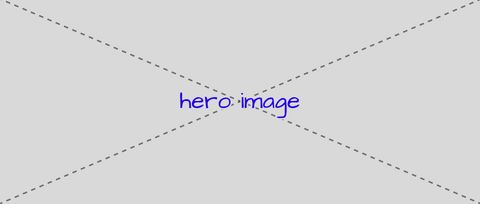Why this matters.
For three days, technologists from many parts of the country gathered in
Atlanta GA – a melting pot of human experience in itself – to realize
just that. Refactr.tech showcased growing and powerful voices of
underrepresented professionals in tech and their allies; with a focus on
technology and creating a safe space to have conversations around
diversity, inclusion, and intersectionality in tech.
I knew I was in the right place
as I met so many people
I already follow on Twitter.
First, I’d like to thank the awesome women of Vue Vixens for
sponsoring my ticket for the conference. Refactr.tech is a re-branding
of sorts of We RISE, a conference organized by Women Who Code Atlanta,
that has for the last few years provided a space to grow and showcase
the work of women in technology.
With the inauguration of Refactr.tech, that experience has been expanded
to not just women, but all underrepresented technologists and their
allies. This was great because we don’t have the luxury of just working
with women in our everyday lives, and everyone needs to be in on the
conversation to really get a well-rounded perspective on what D&I is and
how we can build better workplace cultures around this idea.
Of course, women-focused events have their place, though some miss the
mark on acknowledging intersectionality and understanding the unique
challenges that say, queer and minority women face in the workplace. D&I
is much more nuanced than just “we need more women.”
We know that diversity makes good business sense and that companies that
work towards gender, racial and ethnic diversity see financial gains
above industry medians; but I love how the organizers of this conference
took the conversation further than just its economic benefits.
Here’s a recap.
There were the familiar formats for attendees to learn and make
connections. Day one hosted full-day workshops on things like GraphQL,
Flutter, Gatsby and more. There was a Vue Skulk, where I assume
there were foxy Vue things going on. I’m sad to have missed the first
day for mom things, but ran into an old co-worker who attended the
Flutter workshop. It was his first experience with it, and in
short-order he discovered that Flutter is indeed fun and easy to work
with.
Day two and three were dedicated to the standard keynotes and track
sessions. Tracy Lee of This Dot Labs was on brand delivering the
first keynote on how D&I makes good business sense, all while donning a
prom dress. Day Two’s keynote took a more personal tone with Dr.
Kortney Ziegler explaining how embracing his story has helped him find
purpose in his endeavors at ZaMLabs.
Track sessions included Front-End Engineering, Software Engineering,
Product & UX, Cool Sh!t, Career & Leadership, and Social Impact. I tried
my best to get in on talks from each track. Speakers with various
pathways into technology and levels of experience brought their own
voices to present their passions, ideas, and tips and tricks.
Mike Harington from the Ionic team went beyond the basics of what
makes a website a progressive web app and demonstrated through code and
personal experience which of the big three JavaScript frameworks offers
the most support out of the box.
Tae’lur Alexis gave us the tea on her newfound passion with accessibility. The
inspiration for her talk just might have been divine providence as she’s been
apparently working through issues with her eyesight.
I got to sit in on perhaps the most diverse panel of technologists
I’ve ever seen giving clutch information on what it’s like betting on
yourself through entrepreneurship, building your community, and funding
your ideas in a world where venture-capitalists may overlook you for
being a woman or a minority.
Sangeeta Nori from GM demystified quantum computing for us and
demonstrated how companies are leveraging this very complicated
technology to solve problems of today and tomorrow. My immediate thought
was: How can this be used to tackle climate change, perhaps the most
pressing issue of our time? It was fun to chat her up while playing Uno
during happy hour, to learn that she is struggling to learn Angular
during her day job, just like me.
I sat in on a panel with A* members of /dev/color from Netflix on
being authentic leading teams while black in Silicon Valley – showing
there is strength in a shared experience and knowing that you’re not
alone.
Alexandra Millatmal of Newsela channeled her personal “othered”
experience in her talk, “Mentoring the way to diversity and inclusion”.
It was a call-to-action for companies to make cultural shifts in how
they hire, onboard and mold upcoming talent; talent that perhaps have
less-than-conventional paths to get where they are – and how mentoring
junior engineers and bolstering D&I efforts work hand-in-hand.
Nick Caldwell, Chief Product Officer at Looker (now Google) talked
about his career journey from engineer to VP and some leadership
principles he’s developed on the way that allowed him to grow successful
teams for companies like Microsoft and Reddit.
I even learned something from the not-so-good talks (there were a
couple). But for someone like me – an up-and-coming developer with her
own goals to join the conference circuit – it’s refreshing to know that
not everyone is a rock star and that there is space for me to one day
present my ideas and experiences to my peers.
Final Thoughts.
All in all, the two days I spent there were inspiring and readied me to
go back to work and do great things. Working with companies that value
diversity and inclusion (especially) is a high priority for me. By
working with people from different backgrounds and with different
experiences and working styles, we learn and get another view. Diverse
views make for better decisions that benefit the heterogeneous nature of
end users, and drive a high-performance culture.
I’m pleased to work with people who know the value of making connections
at these types of events. I also feel gratitude towards Vue Vixens for
their part in helping create the experience for this OddBird.



